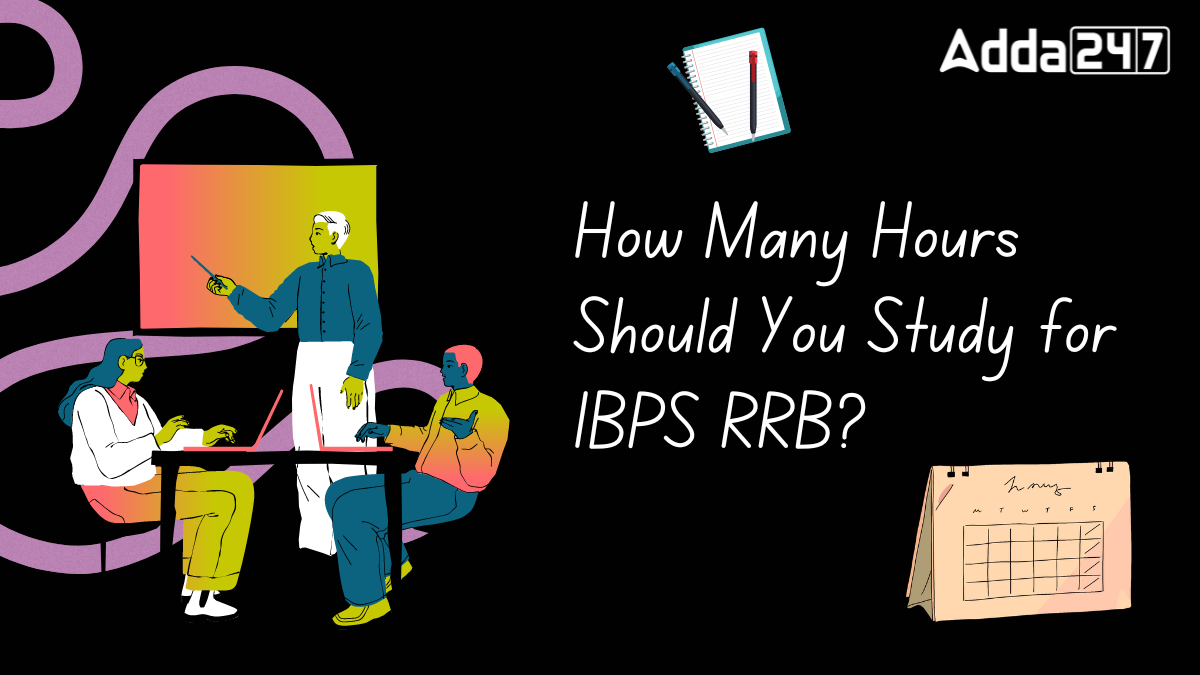The IBPS Regional Rural Banks (RRB) examinations are known for their intense competition, drawing thousands of aspirants each year. One of the most frequently asked questions among candidates is, “How many hours should I study daily for IBPS RRB?” While there is no fixed number applicable to everyone, the ideal study hours largely depend on a candidate’s academic background, grasp of concepts, and individual learning style. Recognizing that everyone’s starting point is different is crucial to setting realistic expectations and study plans.
How Many Hours Should You Study for IBPS RRB?
On average, candidates are advised to dedicate at least 5 to 7 hours of focused study each day for effective preparation. Creating a structured timetable, practicing mock tests, and revising regularly can help make the most of these study hours. By aligning preparation methods with personal strengths and weaknesses, aspirants can ensure they are covering the entire syllabus efficiently while steadily improving their performance.
IBPS RRB Exam Pattern
To determine the right amount of study time, it is important first to understand the exam pattern, syllabus, and the level of competition. The Preliminary exam primarily assesses a candidate’s proficiency in Reasoning Ability and Quantitative Aptitude, while the Main exam expands to include sections like Computer Knowledge, General Awareness, Financial Awareness, and language skills in either Hindi or English. Given the extensive IBPS RRB syllabus and the intense competition, candidates should aim to devote a minimum of 5 to 6 hours of focused and consistent study each day to ensure thorough preparation.
Effective Time Management
While the total study hours are important, effective time management is equally crucial. Candidates should create a well-structured study plan that incorporates the following
- Subject-wise allocation: Allocate study time for each subject based on its weight and your proficiency level.
- Practice and revision: Set aside dedicated time for practicing mock tests, previous year’s question papers, and revising concepts.
- Breaks: Incorporate breaks and leisure activities to avoid burnout and maintain focus.
- Flexibility: Allow for flexibility in your schedule to accommodate unforeseen circumstances or personal commitments.
Structuring Your Study Plan
Candidates can form their study plan according to the following plan
| Study Plan Structure | ||
| Session | Duration | Focus |
|---|---|---|
| Morning | 2-3 hours | Fresh subjects requiring intense concentration (e.g., Quantitative Aptitude, Reasoning). |
| Afternoon | 2-3 hours | Lighter subjects (e.g., Reading Comprehension, General Awareness, Banking Awareness). |
| Evening | 1-2 hours | Revision of the day’s study, solving practice questions, and taking mock tests. |
Weekly Study Plan
| Weekly Plan | |
| Day | Activities |
|---|---|
| Monday to Friday | Intensive study sessions focusing on different subjects each day. |
| Saturday | Take a full-length mock test and analyze the results. |
| Sunday | Review the week’s work, focus on weak areas, and take a break to relax. |
Quality over Quantity
Studying for an extended duration is essential, it is equally important to focus on the quality of one’s preparation. Effective learning involves understanding concepts, practising problem-solving techniques, and developing time management skills.
Consistency is Key
Consistent effort is the key to achieving success in the IBPS RRB exams. Candidates should aim for a steady and disciplined study routine, rather than cramming or with gaps. Allocate dedicated study hours each day, and gradually increase the duration as the examination approaches. Consistency not only reinforces learning but also helps build stamina and mental endurance, which are crucial for tackling the lengthy IBPS RRB exams.
Inference
While the number of study hours is important, the quality of study is even more crucial. The optimal study hours may vary from one candidate to another, depending on individual learning abilities, academic background, and personal circumstances. While there is no definitive answer to the question of how many hours to study for the IBPS RRB exams, a minimum of 5-6 hours per day, with the combination of effective time management, quality preparation, consistency, and a personalized approach, can significantly increase your chances of success.
| Related Posts | |
| IBPS RRB PO Syllabus | IBPS RRB Clerk Syllabus |
| IBPS RRB GBO Syllabus | IBPS RRB Previous Year Papers |
| Is Final Year Student Eligible for IBPS RRB? | Topic Wise Weightage in IBPS RRB PO Exam |




 How to Clear RBI Assistant Exam?
How to Clear RBI Assistant Exam?
 How to Prepare for FCI 2026 Exam for All...
How to Prepare for FCI 2026 Exam for All...
 RBI Assistant Study Plan 2026, Step by S...
RBI Assistant Study Plan 2026, Step by S...









